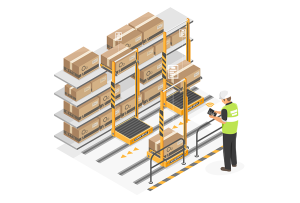 Government procurement and finance functions are faced with the need to be efficient, while simultaneously reducing fraud and increasing control, transparency and auditability for all expenditure. It is a tall order and at the same time these organisations are expected to constantly improve the services they provide to the communities they serve, says Vanitha Govender, Vice President, Government Solutions and Services, MasterCard Southern Africa, in this month’s SmartProcurement.
Government procurement and finance functions are faced with the need to be efficient, while simultaneously reducing fraud and increasing control, transparency and auditability for all expenditure. It is a tall order and at the same time these organisations are expected to constantly improve the services they provide to the communities they serve, says Vanitha Govender, Vice President, Government Solutions and Services, MasterCard Southern Africa, in this month’s SmartProcurement.
National, regional and collaborative procurement frameworks can help reduce sourcing overheads and achieve better value for money, but end-to-end transactional procurement processes often remain manually intensive and a burden for both buyers and suppliers. A simple and cost effective way to address this is a purchasing card programme that can provide significant benefits for the government:
Simplified procurement processes: A US study found that purchasing cards have cut buyers’ administrative cost of procuring and paying for goods and services from $90 down to $20 per transaction and reduced the number of payment approvals by 39%.
Improved control and visibility: Purchasing card programmes enable administrators to implement policy through the set-up of detailed controls such as limiting the category of suppliers, setting individual spend thresholds and adding in approval work-flow. To support this, governments can generate detailed reports on spending behaviours to help them monitor and enforce compliance with policy.
Spend analytics: Spend analysis tools enable governments to monitor suppliers and analyse transaction data so they can identify the most competitive suppliers and negotiate the best terms. In one study, 66% of organisations got a higher discount from suppliers during negotiations using the extra data they got from their purchasing cards.
Working capital management: Enables governments to support their supplier community through early payments yet maintain or improve their working capital management capability.
However, as purchasing card programmes have been implemented over the last 25 years, they have been required to deliver increasing functionality to meet the needs of demanding corporate buyers. This has led to a new generation of card services, such as MasterCard’s Purchase & Pay in the UK providing:
• deeper integration with internal corporate procurement systems;
• connectivity to eMarketplaces; and
• the use of virtual card numbers to give enhanced security and control.
"It enables individual organisations and federal governments to leverage their existing investment in ERP or procurement solutions and extend them to include the benefits of integration with a card payment network as described above", explains Govender.
So far, so good for government, but what does it mean for their suppliers?
There are a number of general benefits for suppliers when they accept cards, such as increased chance of selection, increased volume per customer and greater revenue consistency. However, specifically in relation to financial transactions with government, the greatest benefit for a supplier is speeding up payment and improving their cash flow. Traditionally longer payment terms of 45-60 days can be cut to just a few days.
Furthermore, this is particularly important for small and medium sized businesses that support local communities and drive innovation. Smaller businesses find it more difficult to access loans for working capital and the longer it takes them to receive payment for the goods and services they have provided, the more their ability to innovate or invest in their workers is impacted. Payment by purchasing card puts the supplier in charge of their own cash flow.
As governments and corporations extend the roll-out of purchasing cards there has been further innovation to reduce the barriers to on-boarding suppliers of any size. Through the use of payment facilitators, buyers can now use purchasing cards to pay suppliers that are not card enabled in the traditional sense and this opens the way for governments to access a much wider supplier base.
The need to adopt an inclusive procurement strategy with supplier diversity is a fundamental requirement to promote economic development. The benefit of purchasing cards to suppliers therefore becomes a benefit to government as is helps support a diverse, mixed economy supply base. It helps to spread risk, ensures the best supply arrangements in the broadest sense and contributes significantly to the sustainability agenda. Maintaining the flow of cash and capital in a supply chain is important in economic growth and even more so in a supplier portfolio that includes small and medium sized enterprises.


























